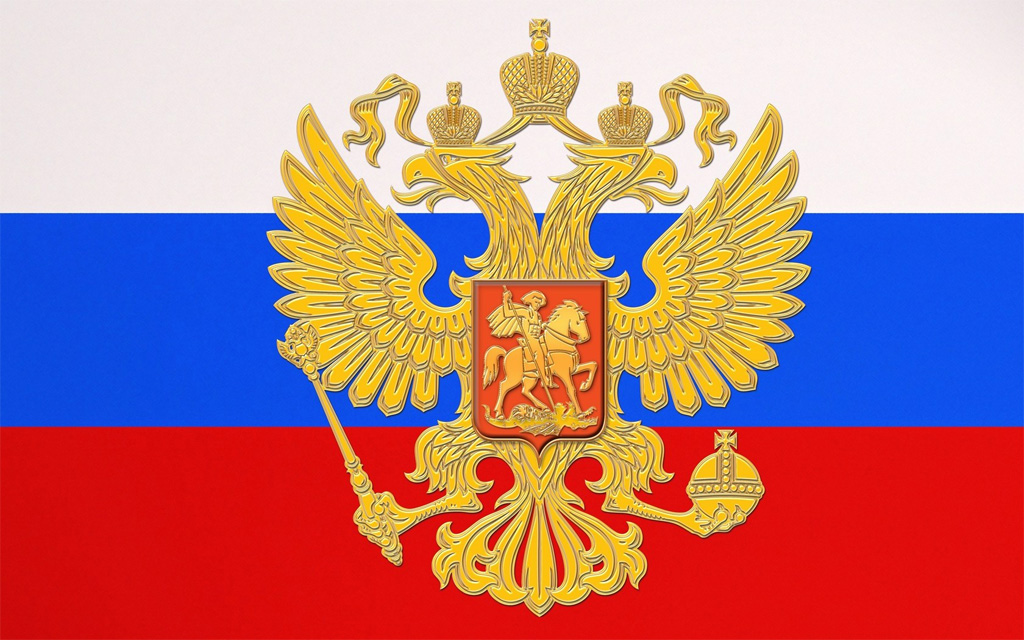International laws and their relationships to diplomacy

Prepared by the researcher : Muhammad bin Salem bin Hamoud Al-Saadi- PhD researcher in the press and media at the Institute of Journalism and News Sciences- Manouba University- Tunisia
Democratic Arab Center
Journal of Afro-Asian Studies : Sixteenth Issue – February 2023
A Periodical International Journal published by the “Democratic Arab Center” Germany – Berlin.
:To download the pdf version of the research papers, please visit the following link
Abstract
Diplomatic law has become one of the most important areas that control the work of permanent and temporary diplomatic missions, and public international law is concerned with organizing external work affairs between people of international law and clarifying the means of representation of each of them and clarifying the mechanisms of international affairs management in the diplomatic field, consultation and negotiation between them.
And international diplomatic law is also characterized by diplomatic representation and judicial immunity of the diplomatic envoy and the mechanisms of negotiations between countries and other international laws, as well as the conditions for selecting negotiating, their rights and privileges and agreements that regulate diplomatic work, because the immunity granted to one of the diplomatic corps represents a diplomatic custom and dealing with the Ministry of Foreign Affairs through notes Sin and oral.
An introduction:
Diplomatic law is in fact part of the international law that deals with the provisions related to diplomatic representation and negotiations between countries and negotiators, their rights and their privileges, treaties and agreements that take place between states and if the foregoing constitutes us the general aspect of diplomatic law, there is in addition to this aspect of each country that derives its provisions from its legislation The patriot and its systems and traditions, as it may differ in its details from one country to another.([1]).
The law regulating diplomacy also consists of eight branches, namely the United Nations Charter, Qatar Use of Power between states and international human rights law, international criminal law and the Life Law Law of the Law of Diplomatic and Consulate Relations Law of Environment and Refugee Law ([2]).
The great interest received by international diplomatic relations through international bodies and scientific councils that led to the first general international agreement to discuss good deeds and privileges related to the diplomatic envoy is the Havana Agreement (1928 AD), which was signed by American countries in the capital, Cuba.
With the attempt to organize the initiatives, it was through the Taqunin Conference, which was in The Hague (1930 AD),. This is because of its importance and immunity based on the rest in Resolution No. (658) issued in December (1952) ([3]).
It is also considered the oldest diplomatic law in the branches of public international law in terms of practice, in which it expresses the sovereignty of the state, and its legal rules are the oldest rules of women affiliated with international law and more firmly and achieving external interests of countries in terms of exchanges and friendly communications ([4]).
International and diplomatic laws:
The definitions of the first law in the scope of diplomatic work are numerous, including:
It is a specific political and social reality simulation that organizes and through which the behavior of the international community, which is concerned with the rights of international persons from member states and affiliated organizations, and defining the obligations and rules that govern relations of the war time and delivered the naming, development and definition of international law from the point of view of jurists ([5]).
The diplomatic law is based on a set of customary rules and agreements that countries are committed to binding in their mutual dealings, while the International Court of Justice defines them as the law that governs relations between independent countries, The French jurist, A “,” is also seen as a set of binding legal rules that govern relations between international legal persons and international states and organizations. Hoffin’s “Hoff” that public international law has the right to the path of march relations between or above states ([6]).
Diplomatic law: a set of legal rules in which relations between individuals within society are regulated, which results in violation, punishment and commitment.
Conditions for the establishment of diplomatic relations:
- That each country has a diplomatic mission with another country, as it is a communication tool between the two countries that document ties and work on good understanding between them.
- Mutual satisfaction and agreement between countries, the transmission and reception of permanent diplomatic missions also requires mutual satisfaction, and this is confirmed through the excellence between the permanent diplomatic system and the temporary diplomatic system, as the agreement in us provides for the special diplomatic missions of (1969 AD) that countries can send and receive missions A special diplomacy after mutual approval between each other without there being a necessity for the presence of diplomatic or consular relations between them ([7]).
Diplomacy and international law:
If international law is a set of rules regulating international relations and the international system, with diplomatic work in accordance with the rules of behavior, diplomatic literature and the Vienna Convention, there are many diplomatic norms that some legal stations have witnessed, provisions of international law, negotiation methods, diplomatic envoy, advantages, immunity ([8]).
Diplomacy and foreign policy:
When the state draws its external policy, it takes into account the national interests and sublime interests of the state, through the plans and activities set within the framework of the state’s external relations based on this on many historical, internal and geographical constituents, Accordingly, we must clarify the difference between diplomacy and foreign policy on the grounds that foreign policy is drawn and determined by special constitutional institutions that combine the presidency of the state, parliament, the government and the Ministry of Foreign Affairs, while diplomacy is a tool for implementing this foreign policy and achieving its goals, as it can happen type From the overlap between the two concepts, and diplomacy may be the only tool for implementing foreign policy and achieving national goals, countries may resort to using other means of pressure and bargaining such as the economy, the military factor, the cultural factor ([9]).
Characteristics of international law:
- Attention to legal relations between persons of private law ([10]).
- Addressing relations between countries by defining roles, duties and rights widely by nature to dismantle, reject and virtue of tendencies and settlement in friendly ways that guarantee state entities and its global position within the external scope of the state borders.
- Preserving the rights of the state members, but it is included in the affairs of the state, as it addresses the state and its relationship with it to preserve the rights of the state members, but rather it is included in the affairs of the state, as it addresses the state and its relationship with it with other countries in terms of people, as well as the issues of nationality, residence and property, which is more connected than internal legislation And in which international relations are organized.
Diplomacy and international relations:
Considering that the state is one of the main actors in international relations through communication and interaction with the rest These relations and achieve the goals of the state ((.[11]
Diplomatic law sources:
There are many sources of diplomatic law ([12]), including:
- Custom: A group of rules and principles recognized in diplomatic life and existing relations between countries and their diplomatic representatives. This custom is based on similar precedents in diplomatic work, so they have become common practices of repetition and mutual behavior, and what facilitated the process of adhering to these precedents and their flow among countries on the basis of the principle of reciprocity.
- International treaties and agreements: International treaties and agreements on international diplomatic affairs are an official source of diplomatic law and these treaties and agreements are usually classified in terms of their importance and impact, classifying public treaties and agreements and to classify special treaties and agreements, and perhaps the best examples of this type is an agreement in us for diplomatic relations in (1916 AD) issued by The United Nations as well as the Vienna Agreement for Consular Relations for the year (1963 AD), and both of these two agreements are considered two general international treaties. In reaching the same purpose.
- The opinions of international and diplomatic jurists: These opinions are a source of enrichment of the law of diplomatic relations because of their practical knowledge and wide experience, as their long experiences have inspired them to conduct research and studies on their problems in diplomatic relations and end them with their technical jurisprudence, and among these jurists is his desire to study the provisions of private customary law With diplomatic relations and presenting them in the form of analysis or comment, which gives them some useful opinions that work in one way or another to develop the base of diplomatic relations when legalizing them, and there are jurists within scientific bodies concerned with issues of diplomatic law and presented a project to them.
- Decisions and Fatwas of the International Court of Justice: The decisions and fatwas of the International Court of Justice constitute another source of diplomatic law. The decisions of this international court are that all members of the United Nations as well as non -members are according to special conditions that have the right to present their lawsuit to the court to take its decision on them and its pledge to abide by them and concern these various judicial decisions and including Issues related to diplomatic relations, whether it was mentioned in the consecutive treaties and in which it requests to give a fatwa in the various diplomatic issue to it or to give a ruling in a case related to the determination of the party that violated its commitment or the report of compensation to a state that caused harm to another country that the decisions and fatwas issued by the International Court of Justice In cases of diplomatic relations, they are relatively small and among these decisions the decision of the International Court of Justice issued on November 2 (1950 AD) related to political asylum.
- International diplomatic conferences and agreements: International conferences in modern times played a distinguished role in stabilizing and writing the rules for organizing diplomatic relations, especially when they end in diplomatic agreements approved by the joint countries and reach to write down some of the rules that remove the differences in which the most important historical conferences have clear positive effects represented in a conference In us, in the year (1815 AD), in which the participating countries reached a system to arrange diplomatic envoys and determine their predecessors.
- Official and private efforts: The jurisprudence of the courts includes the issuance of decisions related to diplomatic matters, as it constitutes a source of diplomatic law as much as it clarifies its mysterious points at times, and although the court rulings in a state of law are not for the law in another country, it is possible to refer to the judiciary of these courts as a matter of reasoning and identification to How to apply it to the legal rule as it is possible to fill the gaps that accompany diplomatic law thanks to the issuance of judicial decisions.
Sources and references:
- Amer’s hyena (2022). Diplomacy and International Cooperation, available at the following link: http://stage.univ-sba.dz/login/index.php
- Eileen Denza (2012). Agreement between us for diplomatic relations, United Nations audiovisual library for international law, p. 1.
- Issa Zaid (2018). Lectures in Public International Law, Sudan: Institute of Law University Center, p. 12.
- Issa Zaid (2018). Lectures in Public International Law, Sudan: Law Institute University Center, pp5-7.
- Issa Zaid (2018). Lectures in Public International Law, Sudan: Law Institute University Center, pp8-7.
- Kadir Muhammad Tawfiq (2020). Lessons in the scale of private international law, Algeria: Mohamed Abu Dhimaf University, the Faculty of Social Humanities, Department of Islamic Sciences.
- My friend Samia (2017). The principle of satisfaction in diplomatic law, is available at the following link: https://democratic.de
- Peace Center for Diplomatic Culture (2022). Diplomatic law, available at the following link:http://www.sironline.org
- United Nations | (2022). The Secretary -General’s Initiative: Working for Peace, available at the following link: https://www.un.org
- Walid Imran (2014). The means organizing external relations external representation and treaties, a letter provided for a master’s degree, Algeria: Constantinople University, Faculty of Law, p. 39.
[1]Eileen Denza (2012). Agreement between us for diplomatic relations, United Nations audiovisual library for international law, p. 1.
[2]United Nations | (2022). The Secretary -General’s Initiative: Working for Peace, available at the following link: https://www.un.org
[3] Walid Imran (2014). The means organizing external relations external representation and treaties, a letter provided for a master’s degree, Algeria: Constantinople University, Faculty of Law, p. 39.
[4] Issa Zaid (2018). Lectures in Public International Law, Sudan: Institute of Law University Center, p. 12.
[5] Issa Zaid (2018). Lectures in Public International Law, Sudan: Law Institute University Center, pp5-7.
[6] Issa Zaid (2018). Lectures in Public International Law, Sudan: Law Institute University Center, pp8-7.
[7] My friend Samia (2017). The principle of satisfaction in diplomatic law, is available at the following link: https://democratic.de
[8] Amer’s hyena (2022). Diplomacy and International Cooperation, available at the following link: http://stage.univ-sba.dz/login/index.php
[9] Amer’s hyena (2022). Diplomacy and International Cooperation, available at the following link: http://stage.univ-sba.dz/login/index.php
[10] Kadir Muhammad Tawfiq (2020). Lessons in the scale of private international law, Algeria: Mohamed Abu Dhimaf University, the Faculty of Social Humanities, Department of Islamic Sciences.
[11] Amer’s hyena (2022). Diplomacy and International Cooperation, available at the following link: http://stage.univ-sba.dz/login/index.php
[12] Peace Center for Diplomatic Culture (2022). Diplomatic law, available at the following link:
http://www.sironline.org




